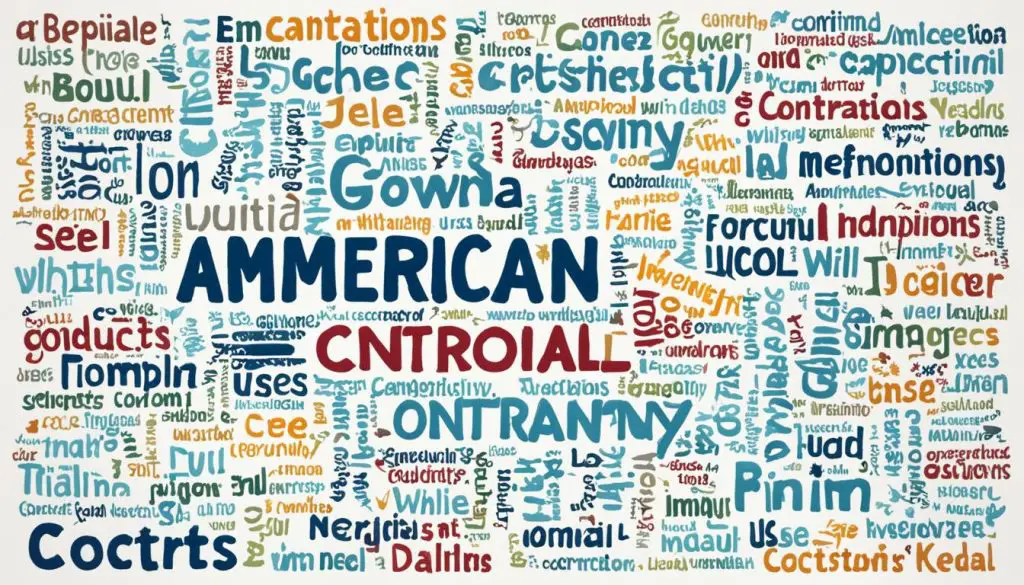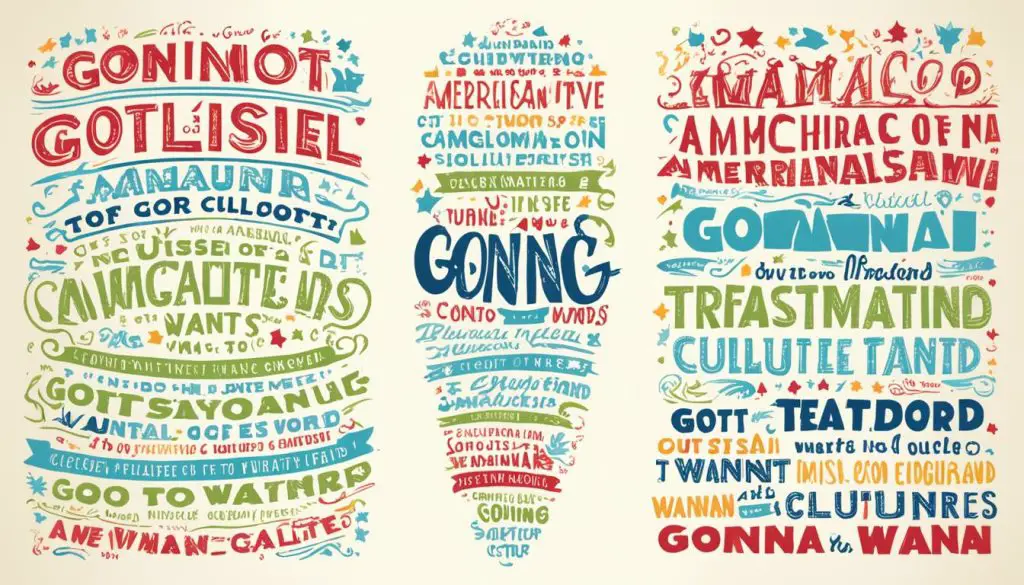
Ever found yourself puzzled by the rapid-fire slang that zips through casual American conversations? You’re not alone. The world of American English is often peppered with contractions like gonna, gotta, wanna, outta, and kinda, each holding a special spot in the lexicon of colloquial communication.
These phrases might seem elusive at first, but their ubiquity in spoken language provides a fascinating explanation of the cultural intricacies of conversational American English. You’re about to unlock the secret to using these contractions just like a native speaker, improving your grasp on the spontaneity and ease that define everyday American dialogue.
In your journey through the vibrant landscape of American English, understanding these contractions is pivotal. They’re not just shortcuts; they show attitudes, emotions, and nuances that are central to authentic interactions. Their usage may fly under the radar in formal writing, but in the world of informal chats and friendly banter, they’re essential. Let’s break down these terms and give you the inside scoop on how to incorporate them naturally into your conversations.
Decoding the Basics of American English Slang

As you dive into the vibrant world of American English, you’ll encounter a colorful array of slang and informal contractions that provide a snapshot of the language’s constant evolution. These conversational shortcuts, from “gonna” to “kinda,” are not just about slinging words together—they’re a complex dance of communication that reflects the rhythm of American life.
The Evolution of Informal Contractions in English
Speech patterns in American English naturally seek the path of least resistance, which is how informal contractions have become an integral part of the lexicon. The evolution of these terms is a testament to the language’s adaptability, catering to the need for speed and clarity in casual chats. Understanding this linguistic economy can give you a leg up in mastering the nuances of everyday communication.
Common American Slang Terms and Their Standard Forms
Let’s unpack some of the most ubiquitous slang terms and their buttoned-up counterparts:
| Slang Term | Standard Form | Usage Explanation |
|---|---|---|
| Gonna | Going to | Indicates future plans or intentions |
| Gotta | Got to/Have to | Expresses obligation or need |
| Wanna | Want to | Shows desire or wish |
| Outta | Out of | Denotes exit or removal |
| Kinda | Kind of | Implies a qualitative measure or uncertainty |
Gonna, gotta, wanna, outta, and kinda all represent words as they are pronounced in informal, spoken English. They should not be used in formal writing.
Gonna comes from going to:
- I’m going to buy a new mobile phone. (written)
- I’m gonna buy a new mobile phone. (spoken)
Gotta comes from got to:
- I’ve got to go now. (written)
- I gotta go now. (spoken)
Wanna comes from want to:
- I want to improve my English. (written)
- I wanna improve my English. (spoken)
Outta comes from out of:
- Get out of here! (written)
- Get outta here. (spoken)
Kinda comes from kind of. ‘Kind of’ is an informal expression meaning quite/rather:
- I was kind of angry when he left. (written)
- I was kinda angry when he left. (spoken)
Understanding the Context and Usage of Slang
While you’re getting comfy with the way Americans bend their words, remember that context is key. Slang and informal language are your go-to in more laid-back scenarios, but they’ve got an ‘outta bounds’ line when it comes to formal situations. Navigating when to drop these casual forms in favor of their full-fledged relatives is crucial for crystal-clear communication.
So, whether you’re gonna slide these into your next convo, or you just wanna understand what’s being said, remember—it’s all about choosing the right tool for the right job.
Why Gonna Gotta Wanna Outta Kinda are Prevailing in Conversations
If you’ve found yourself immersed in American English conversation, you’ve undoubtedly noticed an array of contractions like gonna, gotta, wanna, outta, and kinda weaving their way through the dialogue. These terms aren’t just slang—they’re integral parts of the colloquial speech that dominates American communication, signifying both efficiency and authenticity. Indeed, these contractions serve as linguistic evidence of how the language has adapted to our fast-paced lifestyles, allowing us to express ideas more succinctly and with a genuine informality that mirrors our day-to-day interactions.
In your everyday engagements, these contractions prevail because they are quick to say and easy to understand—a reflection of how modern Americans prefer to talk. They capture the essence of the conversation without the formalities that can often seem cumbersome or unnecessary in informal settings. Importantly, your understanding and utilization of these colloquial terms can fortify your grasp of American English, ensuring your speech aligns with that of native speakers. It’s not purely about grammatical correctness; it’s about fostering an authentic and fluent tone that resonates with the listeners around you.
Your mastery of the casual gonna, gotta, wanna, outta, and kinda will not just aid in your communication—it’s a stepping stone to feeling at home with American English. This vernacular is everywhere, from the bustling streets of New York to the sunny coasts of California, and recognizing its prevalence in conversations is pivotal to comprehending the dynamic nature of the language. As you continue to engage with diverse American communities, echoing their colloquial speech will not only enhance your fluency but will also deepen your cultural understanding and connection.



























